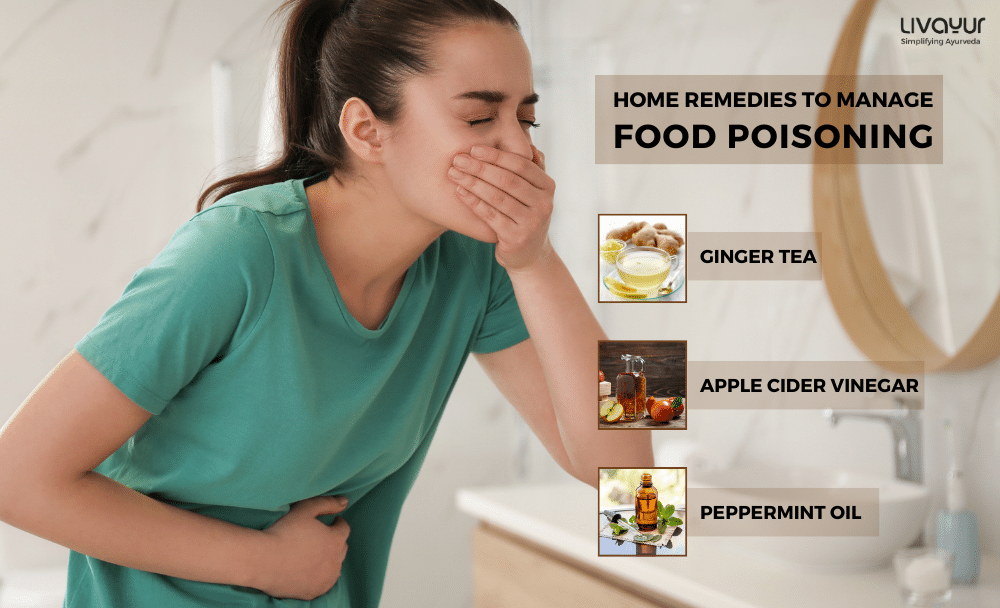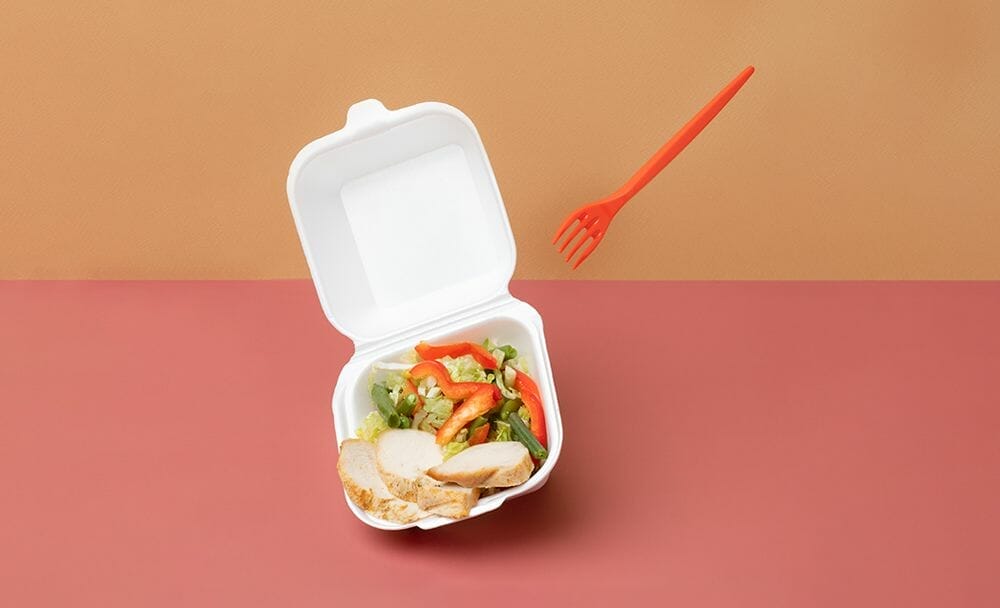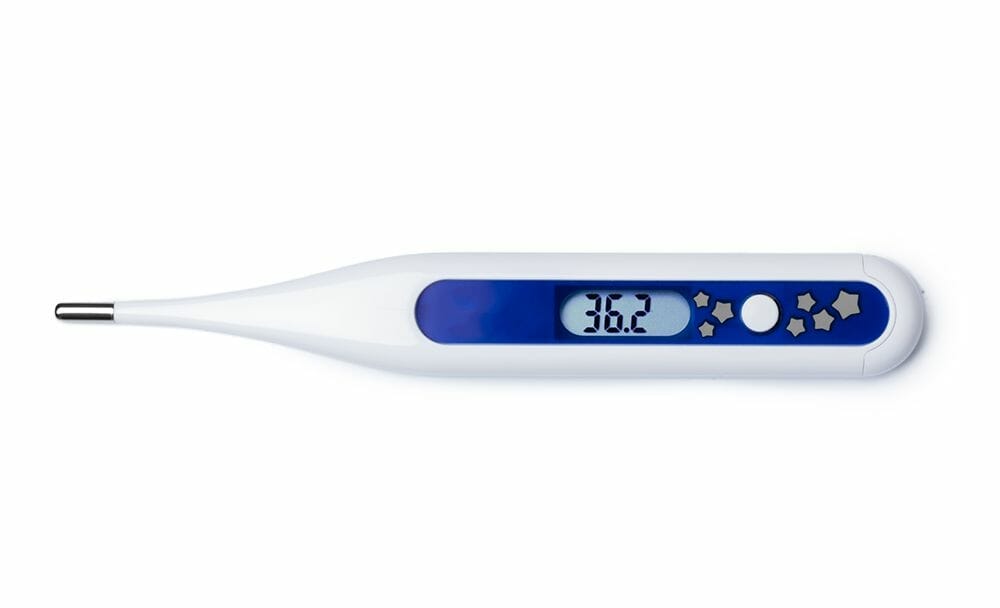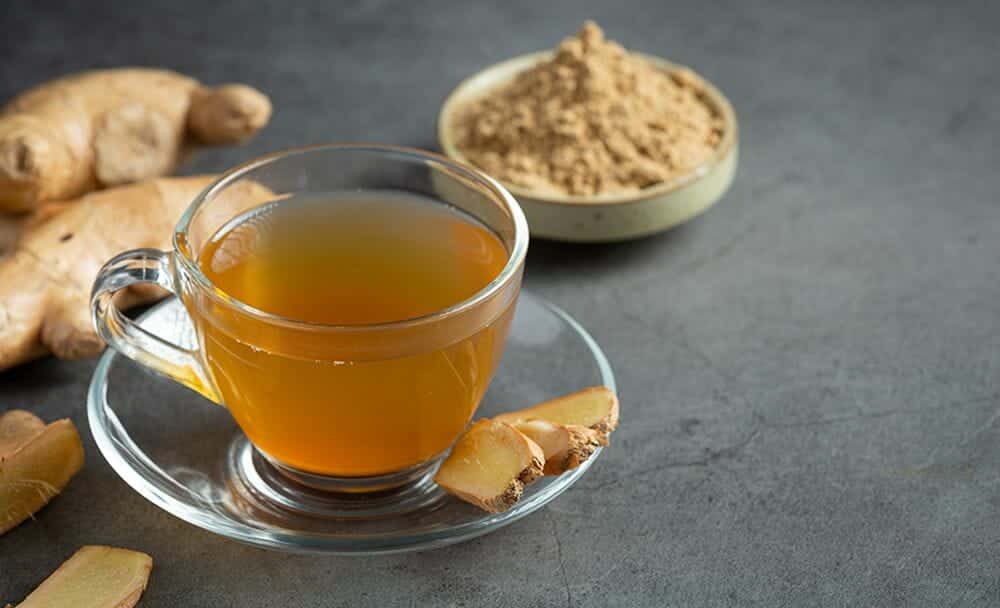
Are you experiencing the distressing symptoms of food poisoning? While it can be a daunting experience, there’s good news: relief may be found right in the comfort of your home. This article explores tried and tested home remedies for food poisoning that alleviate the discomfort caused by food poisoning and aid in the recovery process. So, let’s discover 15 home remedies for food poisoning to get you back on your feet and feeling your best again.
What is food poisoning?
Food poisoning is an unpleasant condition occurring when you consume contaminated food or beverages. It’s like an unwelcome surprise party for your digestive system without fun. When harmful bacteria, viruses, parasites, or toxins find their way into what you eat or drink, they wreak havoc on your body, leading to distressing symptoms.
It’s like playing detective as you try to figure out the culprit behind the discomfort. While food poisoning can happen to anyone, understanding its causes and symptoms is essential to prevent its occurrence and mitigate its effects. [1]
Why does food poisoning happen?
Food poisoning happens when you eat food and beverages infiltrated by pesky germs. These microscopic troublemakers can be bacteria, viruses, or parasites. Here are some ways food poisoning can happen to you.
- If food is not cooked or reheated thoroughly
Stubborn germs can survive and thrive in your meals if you do not cook or reheat food thoroughly. They can cause uneasiness in the digestive system. [1]
- Improper storage
Failing to freeze or chill food appropriately becomes a fertile breeding ground for these unwelcome visitors. [1]
- Leaving food out for long
Leaving food out at room temperature for too long provides an open invitation for germs to make themselves at home. [1]

- Handling of food
It’s also vital to be wary of the people handling your food. If they’re sick or neglect handwashing, they may unwittingly transfer their germs to the meals they prepare. [1]
- Consuming food past its expiry date
Doing that is like dancing with danger, as it increases the likelihood of encountering those pesky germs. [1]
Symptoms of food poisoning
Here are some tell-tale signs of food poisoning you should be aware of.
- Nausea
Nausea is that uneasy, queasy feeling in the stomach that often precedes vomiting. When foodborne pathogens upset the balance in your digestive system, the body responds by triggering this sensation, warning that something is not quite right. Nausea can be mild or intense and may come and go or linger for an extended period. [1]
- Diarrhoea
Diarrhoea involves loose, watery stools and frequent trips to the restroom. The germs that cause food poisoning irritate the lining of the intestines, leading to this rapid and urgent expulsion of waste. [1]
- Vomiting
Vomiting is the body’s way of forcefully expelling the stomach’s contents when it detects harmful substances. It can be an uncomfortable and messy experience, but it serves as a defence mechanism to prevent the further absorption of harmful pathogens. [1]
- Stomach cramps
Stomach cramps are sharp or dull pains in the abdominal area that can accompany food poisoning. They arise as the intestines contract in response to the infection or inflammation caused by the ingested germs. [1]
- A high temperature of 38°C or above
When food poisoning occurs, the immune system detects the presence of harmful microbes and raises the body temperature to combat them. A fever shows the body is fighting off the infection. [1]

- Feeling generally unwell
Besides the more specific symptoms mentioned above, food poisoning can leave you feeling generally unwell. It may include feelings of fatigue, muscle aches, and chills. These sensations often result from the body’s immune response and efforts to combat the infection. [1]
15 Home Remedies for Food Poisoning?
Here are 15 effective home remedies for food poisoning that can relieve discomfort.
- Stay hydrated
Sip on clear fluids like water, electrolyte drinks, or herbal teas to replenish lost fluids and prevent dehydration caused by vomiting and diarrhea.
- Ginger tea
Brew some ginger tea by adding fresh ginger slices in hot water. Ginger’s natural anti-inflammatory properties can help soothe the digestive system and alleviate nausea.

- BRAT diet
Stick to a bland diet called the BRAT diet. It includes bananas, rice, applesauce, and toast. These gentle foods are easy on the stomach and help bulk up stools.
- Apple cider vinegar
Mix some raw apple cider vinegar in a water glass and sip slowly. Apple cider vinegar’s acidic nature can help combat harmful bacteria.
- Peppermint oil
Dilute a few peppermint oil drops in a carrier oil. Then, apply it to the abdomen. Peppermint’s cooling effect can ease stomach cramps.
- Turmeric milk
Warm up a glass of milk with a pinch of turmeric powder. Turmeric’s anti-inflammatory properties may aid in soothing the digestive system.
- Lemon water
Squeeze fresh lemon juice into water. The acidity of lemons can help balance the stomach’s pH and reduce nausea.
- Chamomile tea
Sip on chamomile tea, known for its calming and anti-inflammatory properties, to ease digestive discomfort.
- Cumin water
Boil some cumin seeds in water and let it cool. Cumin’s antimicrobial properties may help fight infection.
- Fenugreek water
Soak fenugreek seeds in water overnight. Next morning, drink the infused water, as it is beneficial in digestion.
- Probiotics
Consume foods rich in probiotics like yogurt or kefir to restore the balance of healthy gut bacteria.
- Avoid certain foods
Avoid spicy, greasy, or heavy foods that further irritate the stomach.
- Oral rehydration solutions
If diarrhea is severe, use over-the-counter oral rehydration solutions to replace lost electrolytes.
- Avoid dairy and caffeine
Steer clear of dairy products and caffeine as they can exacerbate diarrhea and upset stomach.
- Rest
Allow your body to recuperate by getting ample rest and sleep.
When to see a doctor?
While home remedies for food poisoning can work wonders for mild cases, here are some situations when seeking medical attention becomes imperative.
- Severe dehydration
If you are experiencing excessive vomiting or diarrhea, leading to dehydration, it’s time to seek medical help. Signs of dehydration include dark urine, dizziness, extreme thirst, and dry mouth.
- Persistent high fever
Medical evaluation is necessary if your temperature remains consistently high (above 38°C or 100.4°F) and doesn’t improve with home care.
- Blood in stool or vomit
The presence of blood in your stool or vomit should never be ignored and requires immediate medical attention.
- Frequent, severe abdominal pain
If your stomach cramps are intense and unrelenting or other concerning symptoms accompany them, it’s time to consult a doctor.
- Prolonged symptoms
If your food poisoning symptoms persist for over a couple of days without improvement, it’s best to get checked out by a healthcare professional.
- Underlying health conditions
Individuals with health conditions, like diabetes or a weakened immune system, should seek medical advice promptly to prevent complications.
- Recent travel
Medical evaluation is crucial if you’ve recently travelled to a foreign country and suspect food poisoning, as certain infections may require specific treatments.
- Suspected foodborne illness outbreak
If others who consumed the same food as you are experiencing similar symptoms, it’s essential to report the incident to local health authorities and seek medical attention.
Ayurveda and food poisoning
Ayurveda offers a comprehensive perspective that includes the treatment of symptoms, prevention, and overall well being. According to Ayurveda, food poisoning can result from an imbalance in the body’s Doshas, particularly pitta Dosha, which governs digestion and metabolism.
Ayurvedic practitioners focus on restoring the balance of the Doshas through dietary adjustments, herbal remedies, and lifestyle changes. They often recommend a simple diet of easily digestible foods, spices, and herbs known for their digestive and antimicrobial properties. These include ginger, cumin, and coriander. Additionally, detoxification therapies, like Panchakarma, help eliminate toxins and promote healing.
Ayurveda’s emphasis on personalized treatments and natural remedies can offer a gentle and practical approach to managing food poisoning. As with any health condition, it’s essential to consult a qualified Ayurvedic practitioner for personalized guidance.
FAQs
What is the fastest way to resolve food poisoning?
The fastest way to resolve food poisoning is to seek medical attention immediately. A healthcare professional can provide proper treatment, which may include medications to alleviate symptoms and prevent complications.
How do you treat food poisoning on your own?
While mild cases of food poisoning are manageable at home, it’s essential to rest, stay hydrated with clear fluids, and consume a bland diet (BRAT diet). Herbal teas, ginger, and probiotic-rich foods like yogurt can also help. However, it’s crucial to consult a doctor if symptoms are severe or persistent.
What is the fastest way to cure food poisoning naturally?
There’s no quick fix for food poisoning, but some natural remedies may help. Drinking ginger tea, consuming electrolyte-rich drinks, and following a gentle diet can aid in the recovery process. However, seeking medical advice is necessary if symptoms worsen or persist.
What drink helps food poisoning go away?
Drinking clear fluids like water, herbal teas, electrolyte drinks, or ginger tea can help replenish lost fluids and alleviate symptoms of food poisoning. Avoiding caffeine and alcohol is suitable.
What are the first signs of food poisoning?
The first signs of food poisoning typically include nausea, vomiting, diarrhea, stomach cramps, a high temperature, and feeling unwell. These symptoms may appear within a few hours to several days after consuming contaminated food.
Can we eat curd in food poisoning?
Eating curd (yogurt) in food poisoning can be beneficial, mainly if it contains live probiotics. Probiotics aid in restoring the balance of healthy gut bacteria, which can aid in the recovery process. However, if dairy exacerbates symptoms, avoiding it and opting for non-dairy probiotic sources is best.
Conclusion
Dealing with food poisoning can be a challenging experience. However, these effective home remedies for food poisoning will help you tackle it head-on. It is crucial to listen to your body and recognize when it’s time to seek professional medical advice.
Severe cases of food poisoning or symptoms that persist should never be ignored. Consulting a healthcare professional is the wisest course of action. Prevention is also crucial, so practicing good food hygiene, proper cooking, and storage techniques can help avoid food poisoning.
Disclaimer
The information provided here is not intended to replace professional advice or treatment.
References



















